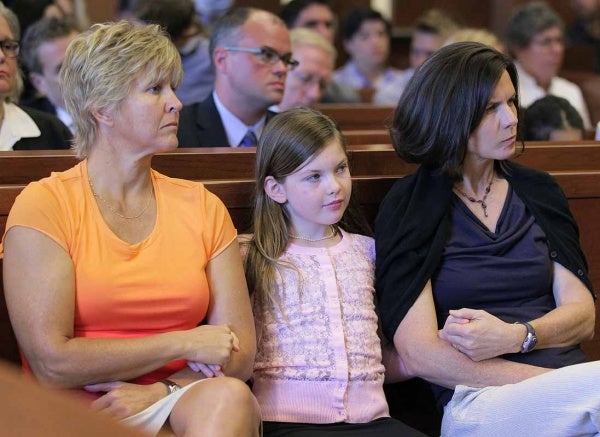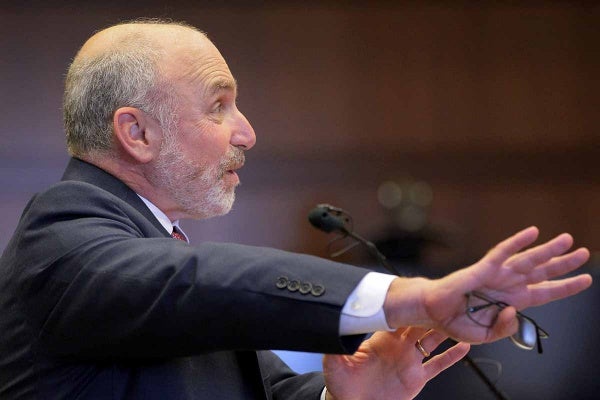Legal case raises questions whether civil unions and gay marriages are equal
For the first time since the U.S. Supreme Court struck down the Defense of Marriage Act, a lower court is interpreting how it applies to state law.
The case is in New Jersey, where gay marriage advocates now argue that the DOMA ruling makes clear that civil unions are second-class to gay same-sex marriages. Civil unions are allowed in New Jersey but they don’t qualify for federal benefits as gay marriages in other states now do.
For almost two hours on Thursday morning, lawyers representing six same-sex couples and the gay rights advocacy group Garden State Equality argued for the immediate recognition of same-sex marriages in New Jersey before Judge Mary Jacobson in Mercer County Superior Court in Trenton.
Hayley Gorenberg, deputy legal director for Lambda Legal and lead counsel on the case, said in an interview with NewsWorks that when DOMA was struck down in June it created a “clear inequality in the law”; Goreneberg saw this as an opportunity to spare her clients the emotional burden of a trial and instead ask for a direct interpretation of the law.
In defense of N.J.’s civil unions, state Assistant Attorney General Kevin Jesperson, argued that it’s up to the federal government whether to give benefits to those in civil unions. Jesperson said that the plaintiffs should sue the federal government not New Jersey.
Political hot potato
Governor Christie has long refuted the notion that New Jersey denies its same-sex couples equal rights, but he has made it clear that he does not support state-recognized same-sex marriages.
Last year, the governor blocked a legislative effort to allow gay marriages. In explaining his decision, Christie said this was an issue for the voters, but state lawmakers balked at the idea of putting the issue on the ballot, leaving it, for now, to be decided by the courts.
In defending N.J.’s civil unions, Christie points to statistics from the New Jersey Division on Civil Rights. Christie said that since 2007 the state received over 1300 complaints related to disability, 1200 related to race, and hundreds related to national origin, age, and sex but only 13 complaints related to civil unions.
“The limited number of complaints regarding civil unions confirms that New Jersey’s civil union law has been effective,” said a statement from the governor’s office.
Tim Wildmon, President of the American Family Association (AFA), told NewsWorks that he agrees with Christie’s suggestion to let New Jersey voters decide on this issue at the ballot box, but he also made clear the AFA’s stance on gay marriage. “God defined marriage as the union of one-man and one-woman at the dawn of creation, and has never changed his mind. “What God has defined, man must not redefine.”
Marcye and Karen Nicholson-McFadden, both plaintiffs who were in the courthouse on Thursday, have been together for 22 years. They obtained civil union status when it was legalized in New Jersey in 2007 and have listed enlisted the help of their two kids – a ten year old and a fourteen year old – as plaintiffs in the case too.
“Back when this all started in 2002, it was so exciting because we felt like New Jersey was at the forefront [of marriage equality],” said Marcye. “Now it feels almost embarrassing to me that the entire Northeast with the exception of New Jersey and Pennsylvania has equal rights for gay people. I feel like we’re in some vortex in New Jersey!”
The state judge is expected to rule on this issue by September at the earliest. Regardless of the ruling, the outcome will likely result in an appeal, which will bring the case before the Superior Court Appellate Division in New Jersey and later to the New Jersey Supreme Court.
_______________________________________________________________
The Associated Press contributed to this report.
WHYY is your source for fact-based, in-depth journalism and information. As a nonprofit organization, we rely on financial support from readers like you. Please give today.










